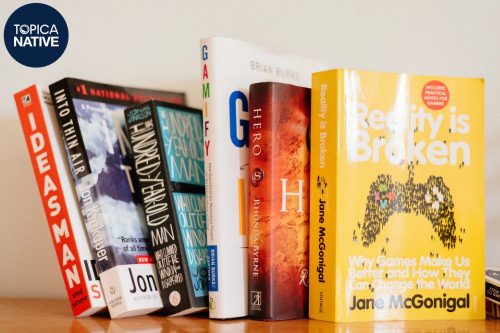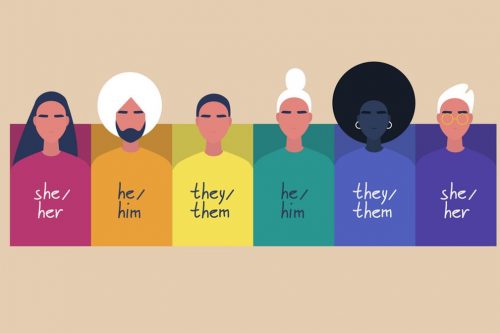Từ vựng tiếng Anh về chủ đề: Truyền hình và báo chí

Thời đại ngày nay có thể coi là một thời đại bùng nổ thông tin, khi truyền thông trên truyền hình và báo chí trở nên phổ biến và phổ cập thông tin đến khắp mọi nơi. Chính vì thế, việc cập nhật kiến thức tiếng Anh để có thể nắm bắt xu hướng là một điều quan trọng và cần thiết. Bài viết sau của TOPICA Native sẽ giới thiệu đến bạn những từ vựng và mẫu câu thông dụng nhất về chủ đề truyền hình và báo chí.
Xem thêm:
1. Từ vựng tiếng Anh về chủ đề Truyền hình và báo chí
Truyền hình và báo chí thường là một đề tài mà mọi người rất quan tâm hiện nay, bởi nhu cầu cập nhật tin tức nhanh chóng cũng như sự thay đổi của khoa học công nghệ. Dưới đây là một số từ vựng về chủ đề này giúp các bạn có thể tham khảo thêm.
Từ vựng tiếng Anh về các loại báo
Local/regional newspaper /ˈloʊkəl/ˈriʤənəl ˈnuzˌpeɪpər/: báo địa phương
National newspaper /ˈnæʃənəl ˈnuzˌpeɪpər/: báo quốc gia (phát hành và đưa tin trên toàn quốc)
International newspaper /ˌɪntərˈnæʃənəl ˈnuzˌpeɪpər/: báo quốc tế (phát hành và đưa tin trên phạm vi quốc tế)
Yellow journalism /ˈjɛloʊ ˈʤɜrnəˌlɪzəm/: báo chí lá cải
Từ vựng tiếng Anh về những người làm trong ngành truyền thông
Proof-reader /pruf-ˈridər/ (n): nhân viên đọc bản in thử (báo giấy)
News bureaus/ desks /nuz ˈbjʊroʊz/ dɛsks/ : bộ phận biên tập tin bài
Sub-editor /sʌb-ˈɛdətər/ (n) = managing edior: thư ký tòa soạn
Fact-checker /fækt-ˈʧɛkər / (n): người kiểm tra thông tin
Television reporter /ˈtɛləˌvɪʒən rɪˈpɔrtər/: phóng viên truyền hình
Editor-in-chief /ˈɛdətər-ɪn-ʧif / (n) = executive editor: tổng biên tập
Editor /ˈɛdətər/ (n): biên tập viên
Deputy editor-in-chief /ˈdɛpjuti ˈɛdətər-ɪn-ʧif / (n): phó tổng biên tập
Content deputy editor-in-chief /ˈkɑntɛnt ˈdɛpjəti ˈɛdətər-ɪn-ʧif/ (n): phó tổng biên tập (phụ trách) nội dung
Journalist /ˈʤɜrnələst / (n): nhà báo
Reporter /rɪˈpɔrtər / (n): phóng viên
Corespondent /ˌkɔrəˈspɑndənt / (n): phóng viên thường trú ở nước ngoài
Camerarman (n) (phóng viên) quay phim
Columnist /ˈkɑləmnəst / (n): phóng viên phụ trách chuyên mục, phóng viên chuyên viết về một chuyên mục nào đó trên báo
Production deputy editor-in-chief /prəˈdʌkʃən ˈdɛpjəti ˈɛdətər-ɪn-ʧif/ (n): phó tổng biên tập (phụ trách) sản xuất
Senior executive editor /ˈsinjər ɪgˈzɛkjətɪv ˈɛdətər/: ủy viên ban biên tập
Graphic artist /ˈgræfɪk ˈɑrtəst/: chuyên viên đồ họa
Senior editor /ˈsinjər ˈɛdətər/: biên tập viên cao cấp
Graphic designer /ˈgræfɪk dɪˈzaɪnər/: người thiết kế đồ họa
Contributor /kənˈtrɪbjətər/: cộng tác viên
Editor-at-large = contributing editor /ˈɛdətər-æt-lɑrʤ = kənˈtrɪbjutɪŋ ˈɛdətər/: cộng tác viên biên tập
Web designer /wɛb dɪˈzaɪnər/: người thiết kế web
Webmaster /ˈwɛbˌmæstər / (n): người phụ trách/điều hành/quản lý website
War correspondent /wɔr ˌkɔrəˈspɑndənt/: phóng viên chiến trường
Photojournalist /ˌfoʊtoʊˈʤɜrnələst/ (n): phóng viên ảnh

Luyện tập từ vựng tiếng Anh về báo chí và truyền thông mỗi ngày
Từ vựng tiếng Anh về báo chí và tòa soạn
Sensation /sɛnˈseɪʃən / (n): tin giật gân
A popular newspaper = a tabloid newspaper /ə ˈpɑpjələr ˈnuzˌpeɪpər = ə ˈtæblɔɪd ˈnuzˌpeɪpər/: một tờ báo lá cải
Quality newspaper /ˈkwɑləti ˈnuzˌpeɪpər/: một tờ báo chính thống (không đăng tin giật gân câu khách)
Newspaper office /ˈnuzˌpeɪpər ˈɔfəs/: tòa soạn
Newsroom /ˈnuˌzrum/ (n): phòng tin (nơi phóng viên làm tin/sản xuất tin bài)
Editorial /ˌɛdəˈtɔriəl / (adj): thuộc/liên quan đến biên tập
Editorial board /ˌɛdəˈtɔriəl bɔrd/ : ban biên tập
Sub-editor assistant /sʌb-ˈɛdətər əˈsɪstənt/: trợ lý/ phó thư ký tòa soạn
Sensation-seeking newspapers /sɛnˈseɪʃən-ˈsikɪŋ ˈnuzˌpeɪpərz/: những tờ báo chuyên săn tin giật gân
Sensationalism /sɛnˈseɪʃənəˌlɪzəm / (n) xu hướng chạy theo (việc đăng) tin bài giật gân
To upload stories to the newspaper’s website /tu upload ˈstɔriz tu ðə ˈnuzˌpeɪpərz ˈwɛbˌsaɪt/ : đưa tin bài lên trang web của báo
Revenue /ˈrɛvəˌnu / (n): nhuận bút
The sensationalim of the popular press /ðə sensationalim ʌv ðə ˈpɑpjələr prɛs/ : xu hướng giật gân của báo chí lá cải
News agency /nuz ˈeɪʤənsi/ : thông tấn xã
Journalistic ethics & standards /ˌʤɜrnəˈlɪstɪk ˈɛθɪks & ˈstændərdz/ : những chuẩn mực & đạo đức nghề báo
Editorial team/staff /ˌɛdəˈtɔriəl tim/stæf/: hội đồng biên tập
Xem thêm: Từ vựng tiếng anh về đời sống
2. Mẫu câu tiếng Anh về chủ đề truyền thông báo chí
Cách nhanh chóng để giúp các bạn ghi nhớ từ vựng tiếng Anh đó chính là đặt câu. Dưới đây là một số mẫu câu tham khảo.
Do you think that news reporting has gotten better, gotten worse, or stayed the same over years?
Dịch: Bạn có nghĩ rằng tình hình đưa tin tức đang trở nên tốt hơn hay tệ hơn, hay không thay đổi trong khoảng thời gian qua?I think that a politician’s private life is newsworthy?
Dịch: Tôi nghĩ rằng không cần đưa tin về các tin tức về đời sống cá nhân của các chính trị gia.Are there certain things journalists shouldn’t report on? Why?
Dịch: Có những vấn đề nào mà phóng viên không nên đưa tin không? Tại sao?Recently, it seems like people are so interestead in the private lives of celebrities.
Dịch: Gần đây, có vẻ như mọi người rất quan tâm đến cuộc sống đời tư của người nổi tiếng.What’s happening in the news right now, both in your country and abroad? Where did you hear about it?
Dịch: Gần đây có tin tức gì mới không? Ở cả nước của bạn và nước ngoài? Bạn nghe được những tin tức đó từ đâu?
Xem thêm: Tất tần tật về cách học qua báo Tiếng Anh hấp dẫn nhất!
3. Bài nói Tiếng Anh về phương tiện truyền thông
Social media is a tool that is becoming quite popular these days because of its user-friendly features. Social media platforms like Facebook, Instagram, Twitter and more are giving people a chance to connect with each other across distances. In other words, the whole world is at our fingertips all thanks to social media. The youth is especially one of the most dominant users of social media. All this makes you wonder that something so powerful and with such a massive reach cannot be all good. Like how there are always two sides to a coin, the same goes for social media. Subsequently, different people have different opinions on this debatable topic. So, in this essay on Social Media, we will see the advantages and disadvantages of social media.
Advantages of Social Media
When we look at the positive aspect of social media, we find numerous advantages. The most important being a great device for education. All the information one requires is just a click away. Students can educate themselves on various topics using social media.
Moreover, live lectures are now possible because of social media. You can attend a lecture happening in America while sitting in India.
Furthermore, as more and more people are distancing themselves from newspapers, they are depending on social media for news. You are always updated on the latest happenings of the world through it. A person becomes more socially aware of the issues of the world.
In addition, it strengthens bonds with your loved ones. Distance is not a barrier anymore because of social media. For instance, you can easily communicate with your friends and relatives overseas.
Most importantly, it also provides a great platform for young budding artists to showcase their talent for free. You can get great opportunities for employment through social media too.
Another advantage definitely benefits companies who wish to promote their brands. Social media has become a hub for advertising and offers you great opportunities for connecting with the customer.
Disadvantages of Social Media
Despite having such unique advantages, social media is considered to be one of the most harmful elements of society. If the use of social media is not monitored, it can lead to grave consequences.
It is harmful because it invades your privacy like never before. The oversharing happening on social media makes children a target for predators and hackers. It also leads to cyberbullying which affects any person significantly.
Thus, the sharing on social media especially by children must be monitored at all times. Next up is the addition of social media which is quite common amongst the youth.
This addiction hampers with the academic performance of a student as they waste their time on social media instead of studying. Social media also creates communal rifts. Fake news is spread with the use of it, which poisons the mind of peace-loving citizens.
In short, surely social media has both advantages and disadvantages. But, it all depends on the user at the end. The youth must particularly create a balance between their academic performances, physical activities, and social media. Excess use of anything is harmful and the same thing applies to social media. Therefore, we must strive to live a satisfying life with the right balance.
Hy vọng bài viết trên đã mang đến cho bạn những từ vựng hữu ích nhất về truyền thông và báo chí. Ngoài ra, bạn cũng có thể trang bị thêm cho mình hàng trăm chủ đề giao tiếp tiếng Anh thông dụng khác trong cuộc sống cùng với TOPICA Native ngay tại đây nhé!






